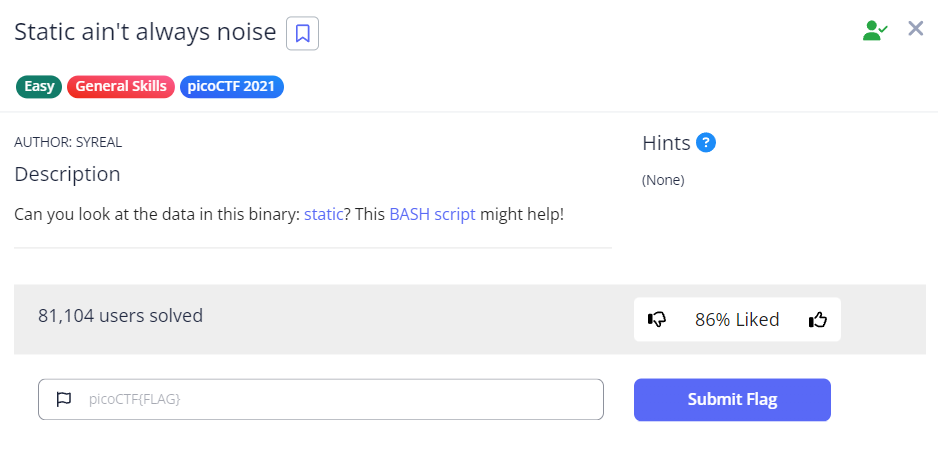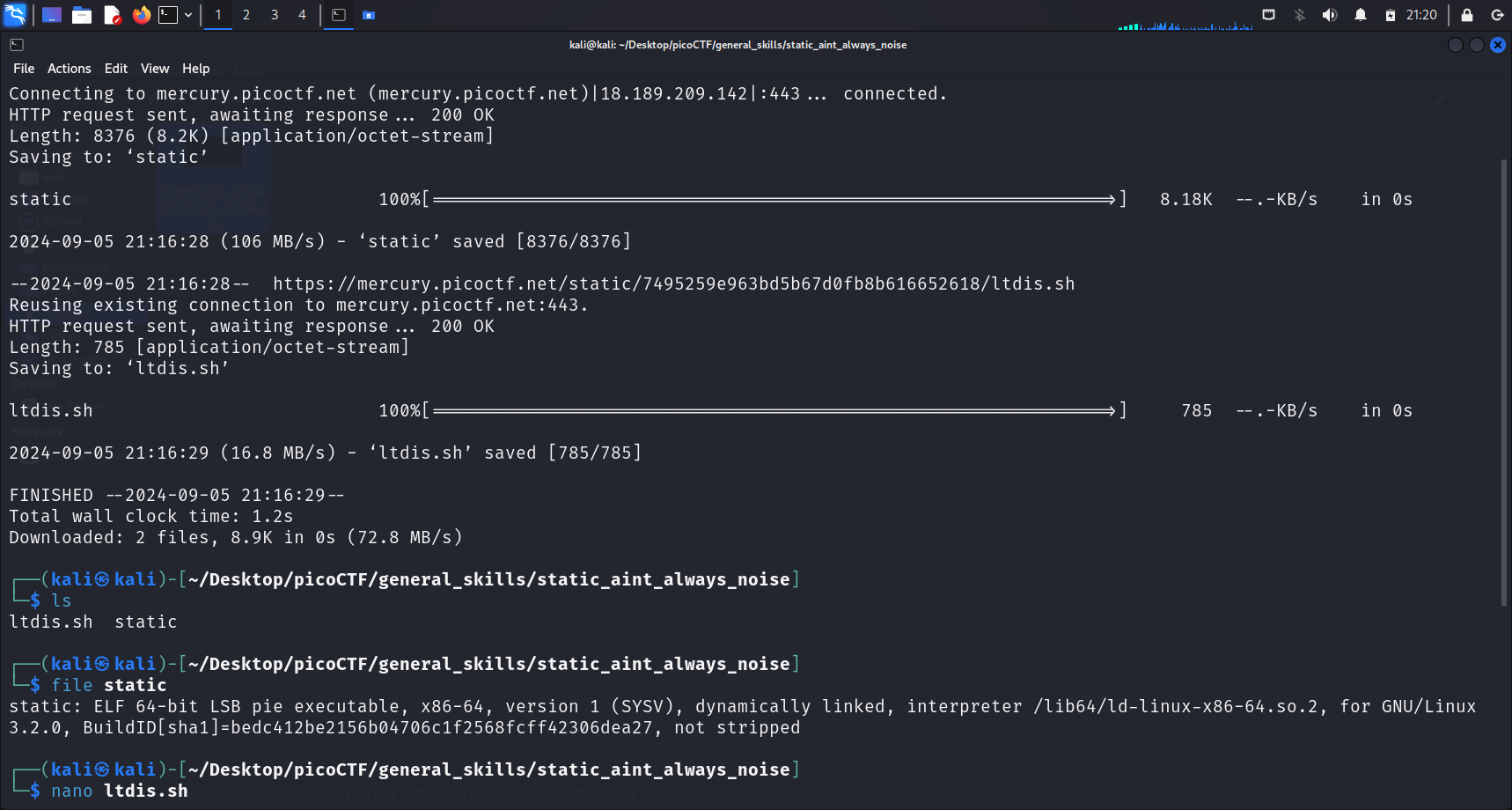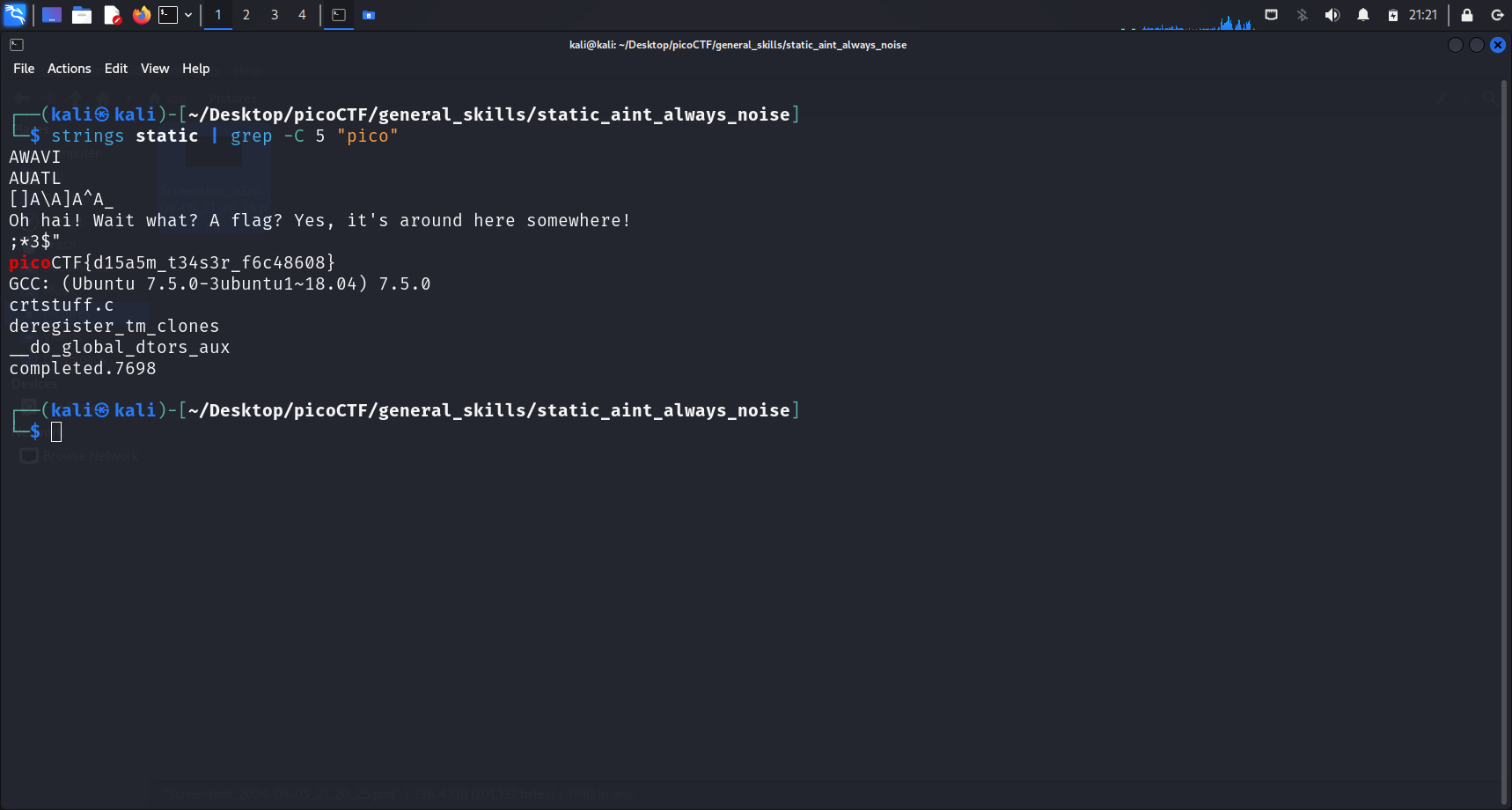Challenge Description

This challenge is similar to strings it and Wave a flag.

After downloading the files using wget, I ran file static to check the file type of this file. Once again, it is a binary executable file. strings will likely be useful here.
stringscommand
stringsprints the strings of printable characters in files, specifically binary files.
I then ran nano ltdis.sh, which was the bash script file provided in the challenge.
┌──(kali㉿kali)-[~/Desktop/picoCTF/general_skills/static_aint_always_noise]
└─$ cat ltdis.sh
#!/bin/bash
echo "Attempting disassembly of $1 ..."
#This usage of "objdump" disassembles all (-D) of the first file given by
#invoker, but only prints out the ".text" section (-j .text) (only section
#that matters in almost any compiled program...
objdump -Dj .text $1 > $1.ltdis.x86_64.txt
#Check that $1.ltdis.x86_64.txt is non-empty
#Continue if it is, otherwise print error and eject
if [ -s "$1.ltdis.x86_64.txt" ]
then
echo "Disassembly successful! Available at: $1.ltdis.x86_64.txt"
echo "Ripping strings from binary with file offsets..."
strings -a -t x $1 > $1.ltdis.strings.txt
echo "Any strings found in $1 have been written to $1.ltdis.strings.txt with file offset"
else
echo "Disassembly failed!"
echo "Usage: ltdis.sh <program-file>"
echo "Bye!"
fiYep, this bash script ltdis.sh is a bash script that attempts to disassemble a binary file and extract strings from it.
Acquiring the flag

I figured that running the bash script will likely be equivalent to running strings for the purpose of acquiring the flag, since they both work by displaying only the printable strings in static.
Indeed, running strings static | grep -C 5 "pico" displayed the flag in the terminal. I used the -C 5 argument to display the5 lines of context before and after the matching line that contains the flag, but this is optional.
Flag
picoCTF{d15a5m_t34s3r_f6c48608}